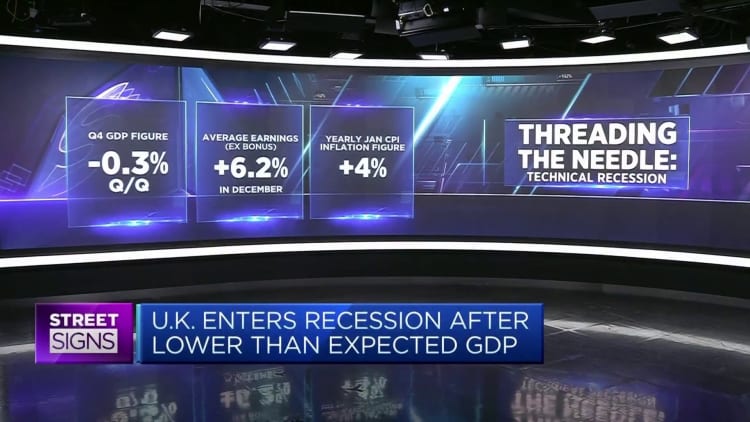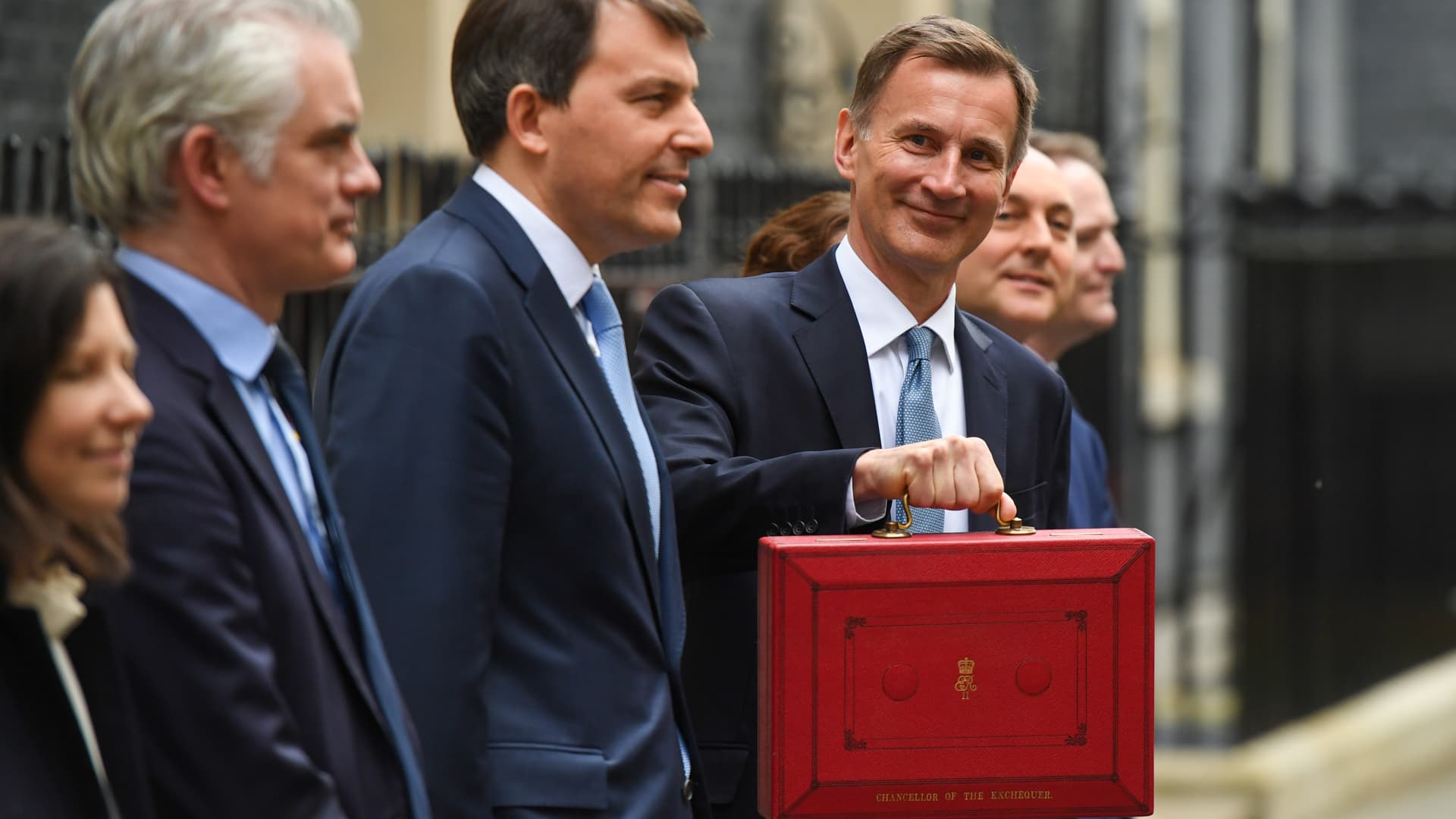Jeremy Hunt, UK chancellor of the exchequer, holding the despatch box as he stands with treasury colleagues outside 11 Downing Street in London, UK..
Bloomberg | Bloomberg | Getty Images
LONDON — The U.K. logged a record £16.7 billion ($21.1 billion) net budget surplus in January, according to official figures released on Wednesday.
The Office for National Statistics noted that the country’s public finances usually run a surplus in January, unlike during other months, as receipts from self-assessed annual income tax payments come in.
Combined self-assessed income and capital gains tax receipts totaled £33 billion in January, the ONS said, down £1.8 billion from the same period of last year.
Total government tax receipts came in at a record £90.8 billion, up £2.9 billion compared to January 2023.
Government borrowing during the financial year spanning to the end of January 2024 was £96.6 billion, £3.1 billion lower than over the same 10-month period a year ago and £9.2 billion lower than the £105.8 billion previously forecast by the independent Office for Budget Responsibility.
Public debt was estimated at around 96.5% of annual gross domestic product, up 1.8 percentage points from January 2023 and holding at levels last seen in the early 1960s, the ONS highlighted.
“We provided hundreds of billions to pay wages, support business and protect lives during Covid, and to pay half of people’s energy bills after Putin’s invasion of Ukraine,” the government’s chief secretary to the Treasury, Laura Trott, said in a statement.
“But we can’t leave future generations to pick up the tab, which is why we have taken tough decisions to help reduce borrowing versus what the OBR expected in March.”
The figures of Wednesday mark the final set of public finances data before Finance Minister Jeremy Hunt delivers his Spring Budget, which outlines the government’s fiscal policy for the year, on March 6.

With a general election due before the end of January 2025 and the main opposition Labour Party leading by more than 20 points in the polls, there has been much speculation about whether Hunt will try to find the headroom for tax cuts next month.
“With recent U.K. by-election results suggesting that the Labour party continues to have the advantage as we head towards the general election, Hunt will be under pressure to offer tax cuts,” said Lindsay James, investment strategist at Quilter Investors.
“However, with his hands largely tied by the state of the nation’s finances, investors must be realistic about the prospects for the extent of this, or prepare for more savage cuts to the U.K.’s already under-strain public services.”





















Discussion about this post